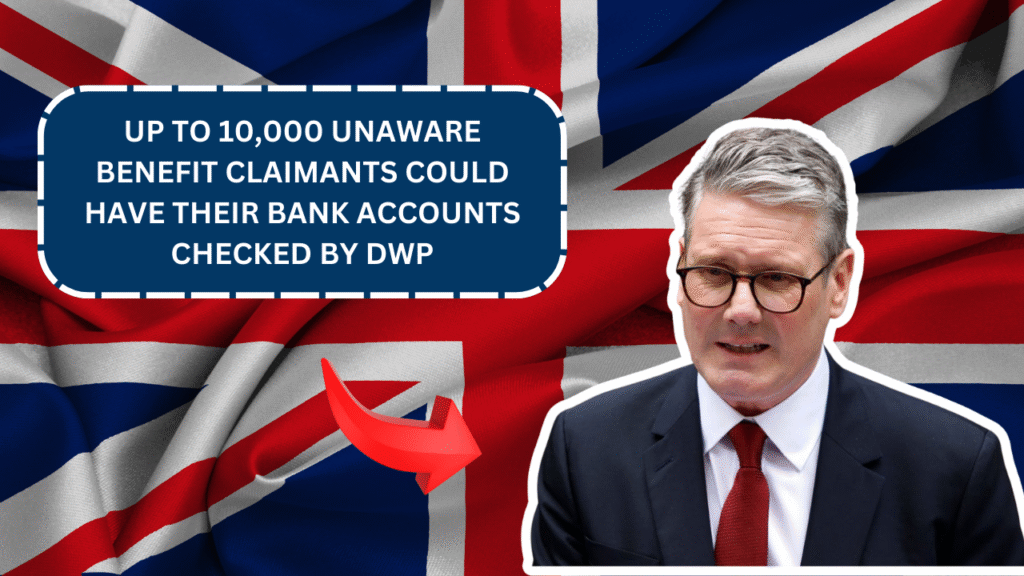In a controversial move, the UK’s Department for Work and Pensions (DWP) is set to examine the bank accounts of up to 10,000 people currently receiving benefits. This latest policy change has raised concerns among benefit claimants, particularly around privacy, surveillance, and the risk of errors. The government argues that it is a necessary step in tackling fraud, but critics fear it may disproportionately affect innocent individuals.
The Plan Behind the Bank Account Checks
The DWP aims to tackle a growing issue of fraud and overpayments within the benefits system, which costs the government an estimated £9.7 billion annually. The new checks would involve gaining access to the bank accounts of benefit claimants, scrutinizing balances, and transaction histories to verify their eligibility for benefits.
Those with savings above £6,000 but under £16,000 could see their benefits reduced, with a deduction of £4.35 for every £250 above £6,000. The move is part of a broader effort to prevent fraud and misuse of the system.
How Will These Checks Work?
The government plans to use automated algorithms to flag potentially problematic accounts. If discrepancies are detected, a claimant’s benefits may be adjusted, or further investigations may be initiated. However, the use of algorithms has raised concerns about the possibility of errors, leading to wrongful investigations of innocent claimants.
The most concerning aspect of these checks is that they would involve examining sensitive personal data, such as bank account balances and transaction histories, which has been met with criticism from privacy advocates.
Privacy Concerns and Criticisms
One of the biggest points of contention is the invasion of privacy. Critics argue that the government’s new policy could amount to mass surveillance of individuals, particularly targeting vulnerable groups like the elderly, disabled, and low-income families. Privacy advocates believe this could set a dangerous precedent and lead to unwarranted intrusion into personal lives.
Moreover, there are concerns about the accuracy of the automated systems. Without adequate human oversight, algorithms may mistakenly flag accounts that don’t actually pose a risk, subjecting innocent people to undue stress and unnecessary investigations.

Political Backlash: Labour MPs Push Back
The DWP’s proposal has sparked backlash even within the Labour Party. Several MPs, including Neil Duncan-Jordan, have voiced strong opposition to the plan, arguing that data checks should only be conducted in cases where fraud is suspected, not as a blanket policy. These MPs believe the move could be seen as authoritarian and an overreach by the state.
Government’s Defense of the Measure
The government, on the other hand, insists that the proposed bank account checks are essential for modernizing the benefits system and ensuring fairness. According to the DWP, the checks will help identify fraudulent claimants and ensure that those who don’t need benefits are not taking advantage of the system.
They also stress that any information shared by banks would be limited to what is necessary for verifying eligibility and would be subject to human review to ensure accuracy.
What Does This Mean for You?
If you are a benefit claimant, this new measure could potentially affect you, especially if you have savings between £6,000 and £16,000. While the government argues this is necessary to reduce fraud, the plan has serious implications for privacy and could cause confusion or errors in how benefits are calculated.
If you’re concerned about this new policy, it’s essential to stay informed. The legislation is still progressing through Parliament, and ongoing debates are likely to shape how it is implemented.
Conclusion
As the DWP’s proposal moves forward, the balance between preventing fraud and protecting individual privacy remains at the forefront of the debate. While the government’s intentions may be to ensure fairness, the unintended consequences could harm vulnerable individuals who rely on benefits to make ends meet.
Stay tuned as this story develops, and ensure you’re prepared for any changes that may come your way.



